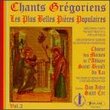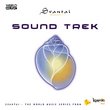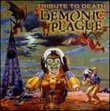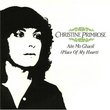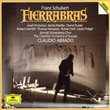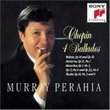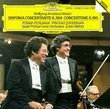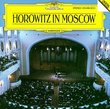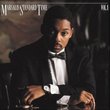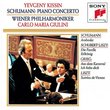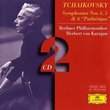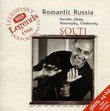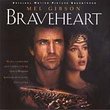| All Artists: Claes-Haakan Ahnsjo, José van Dam, Anne Gjevang, Victor Van Halem, Marjon Lambriks Title: Richard Wagner: Parsifal Members Wishing: 2 Total Copies: 0 Label: Deutsche Grammophon Release Date: 10/25/1990 Genre: Classical Styles: Opera & Classical Vocal, Historical Periods, Modern, 20th, & 21st Century Number of Discs: 4 SwapaCD Credits: 4 UPC: 028941334725 |
Search - Claes-Haakan Ahnsjo, José van Dam, Anne Gjevang :: Richard Wagner: Parsifal
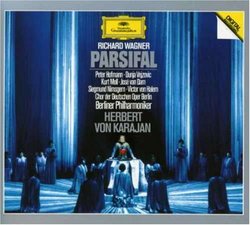 | Claes-Haakan Ahnsjo, José van Dam, Anne Gjevang Richard Wagner: Parsifal Genre: Classical
|
Larger Image |
CD DetailsSimilar CDsSimilarly Requested CDs
|
CD ReviewsAstoundingly beautiful, but it misses the soul of the work cdsullivan@massed.net | Cambridge, MA USA | 05/23/2002 (4 out of 5 stars) "Wagner's final masterpiece demands an orchestra capable of producing gauzy, radiant sonorities, a cast with both beauty of tone and, perhaps even more important, superb acting skills, and a conductor with a talent for both sustaining long musical lines and bringing them together into an overwhelming overall tapestry. Above all, everyone must capture the mood and feel of this challenging piece. This last point is the reason why I think studio recordings of this opera, perhaps even of any Wagner opera, are at a disadvantage right from the start. It's much easier to capture the elusive soul of this work when you're living the story on stage.Karajan's 1980 recording is a case in point. This performance never achieves lift-off. It doesn't soar. Its feet remain firmly planted on the ground. Which is a pity, considering that the miraculous sound world of Wagner's final opera has probably never been so stunningly captured as it is on this recording.The most impressive aspect of this recording is the absolutely astounding playing of the Berlin Philharmonic. For instance, the Act 1 Prelude is one of the most stunning examples of Wagner's orchestral wizardry in his entire output, and to be able to hear it in a performance this gorgeous is almost incredible. The pure radiance of the strings is almost otherworldly, but I think it's the luminous bass line that is the real secret to the incredible texture. Throughout the work, the BPO achieves revelation after revelation in terms of sheer sound. Karajan turns in a towering reading of this monumental score. He was always an expert with huge works, and his command of the structure of the score is exemplary. He faithfully observes Wagner's numerous dynamic markings, essential to the expression of the score, and throughout the work, his conducting achieves tremendous intensity (notably in the Act 1 Transformation Music and in the Act 3 Prelude). The only problem is, he's so obsessed with drawing out those incredible sonorities that he misses the soul of Wagner's drama. The central section of Act 3, where transcendence and spirituality in the conducting are absolutely necessary, is quite earth-bound. The orchestral playing, while stunning, is not sufficient to carry the performance off the ground. As with almost all post-1960 Karajan, it all seems too calculated, too pre-meditated, too un-spontaneous. Comparison with other pre-eminent Wagner conductors proves the point. In all of his recordings, Knappertsbusch, whose particular qualities made him more suited to this particular work than anyone else, provides the transcendent lift to the music that Karajan so drastically lacks (although it must be said, Kna's orchestras are nowhere near as good as the Berlin Philharmonic). Even Solti, not normally known for spirituality, was in exceptional form for his 1972 Decca recording, and his performance soars more truthfully and effortlessly than Karajan's.Karajan's cast is strong overall, spearheaded by the weighty bass of Kurt Moll as Gurnemanz. Moll gives us a warmly, beautifully sung performance, solemn and moving in the great climaxes, but light years behind the incredible achievement of Hans Hotter on the 1962 Knappertsbusch set. José van Dam is the most beautiful, smooth, musical Amfortas on record, although he doesn't always realize the full dramatic potential of this moving character. Siegmund Nimsgern is a resonant but sometimes gritty Klingsor, and he never comes close to matching the menacing Hermann Uhde from Kna's 1951 Bayreuth set. Victor von Halem is a sonorous Titurel. Dunja Vejzovic is a very acceptable Kundry, secure of both voice and interpretation, but she never matches the magnificent singing of Solti's Ludwig in one of her finest recorded achievements. The huge weak link in the cast is, unfortunately, Parsifal himself. Peter Hofmann's dry, gritty, effortful singing and uninspired interpretation are unfortunate in the extreme. Hearing him immediately after the velvety richness of Jess Thomas or the honeyed beauty of Wolfgang Windgassen is almost laughable. The choral work is secure and beautiful, but isn't on the level of Solti's Vienna ensemble.Overall, this performance captures the orchestral sound world of "Parsifal" more impressively and beautifully than any other. Unfortunately, the performance remains earthbound due to a lack of spontaneity, a preoccupation with the beautiful textures, and a flawed cast. It is undoubtedly a very impressive recording, but among studio recordings I prefer Solti's Vienna / Decca set, for its more involved cast (highlighted by Ludwig's fabulous Kundry), Solti's admirably sincere and communicative direction, and above all the overwhelming work from the Vienna State Opera ensemble. First choice overall remains the classic 1962 Knappertsbusch, for the most inspired conducting of the score on record, a flawless cast including Hotter's supreme Gurnemanz, dedicated ensemble work from the Bayreuth forces, and a very special atmosphere which permeates the entire effort, surely one of the three greatest Wagner recordings ever." In my opinion, the greatest Parsifal on record The Cultural Observer | 12/24/2005 (5 out of 5 stars) "Parsifal, one of Wagner's three great Schopenhauerian works, requires a conductor who has a cohesive vision for the entire stage drama that not only brings the entire story together, but engages the audience in a philosophical atmosphere which makes you think about the several psychological nuances experienced by the characters. It is not very hard to play for the orchestra, despite the fact that it is still Wagner, but to bring the truth out of Parsifal takes more than just whipping some baton around to get a note-perfect performance. You need a sense of spirituality and sacredness, and the drama must be there too. I believe that besides the recently released "forgotten" recording by Rafael Kubelik with the late James King, Kurt Moll, and Yvonne Minton, only Herbert von Karajan and his Berlin Philharmonic and the well-selected cast was able to achieve this vision. Most reviewers accuse Karajan of smoothing over the music of Parsifal at the expense of the drama. I would beg to disagree, as I believe that musically, Karajan's dynamics are perfect for the opera, and his choice of rubato is so well-placed that he brings a sense of spirituality to the opera. It's as if the magnificent string playing of the Berlin Philharmonic along with the brass ensemble and the percussions could easily transport you to the mythical realm of Montsalvat. The Verwandlungsmusik is played to perfection, the Prelude sublime and rapturous, and the character leitmotif's are without a doubt...done just right. Orchestra wise, this Parsifal is played to perfection. As for the cast, well, it is true that Karajan could have chosen better singers, but these seasoned Wagnerians have done nothing but achieve the vision that he sought for in his recording. Jose Van Dam is simply the best Amfortas I've heard on record. He may not have George London's large voice, but his singing is so sensitive that you can easily feel the anguish and torture Amfortas is feeling. Karajan's excellent ear for balances allows the orchestra to enhance all the pain and longing that Amfortas yearns for. As for Gurnemanz, I don't think anyone can beat Hans Hotter when it comes to authority, but Kurt Moll sings the role most beautifully and so naturally, with an excellent sense of drama to boot, that I could easily place him beside Hans Hotter. Only Hotter's Act III could slightly be ahead of Moll's, but Moll's achievement is simply outstanding in this one. The Kundry and Parsifal in this recording are often the subject of many a Wagnerian's debate regarding K's choice for casting. Dunja Vejzovic was one of the greatest Slavic sopranos of the past century, with a range that extends from a mezzo to high soprano. Alas, her top is shrill to some listeners' tastes, but for a Callas fan such as I, this isn't much of a problem. I think she brings such a demented and pitiful, yet seductive quality to her Kundry whenever such characteristics are needed. Dramatically, hers is an intense performance, with only Christa Ludwig's achievement exceeding hers. Still, others do appreciate her performance, and I would put it second behind Christa Ludwig's great Kundry. Peter Hofmann, on the other hand, sings a most young and convincing Parsifal. And once again we come to the subject of the wobble. I never heard an absurd one in this recording, and I think his achievement in this recording is equalled only by Jess Thomas. Not even Placido Domingo, whose Wagnerian interpretations are known for their bel canto qualities, touched the young fal parsi that Hofmann and Thomas brought to their performances. A great Parsifal indeed. One would wish that the voice were firmer, but I think we could overlook that and see such a fresh and young interpretation given to the role. For the supporting cast, I think Siegmund Niemsgern gives an excellent Klingsor. It's not an Alberich Klingsor, but a sorcerer Klingsor, just right. The Flower Maidens are sung beautifully, and the Stimme from Above is sung by none other than the great mezzo Hanna Schwarz. Luxurious casting, great orchestra, and a conductor who knows the ABC's of Wagner conducting, plus a most sacred atmosphere created by the recording, and I think you have a Parsifal for the ages. Highly recommended." One of the glories of Karajan's discography Santa Fe Listener | Santa Fe, NM USA | 09/28/2005 (5 out of 5 stars) "Some disappointed reviewers have piled on to this recording, but I feel that it is unsurpassed among modern performances on disc. Karajan had conducted a live Parsifal from the Vienna State Opera (on BMG) that has the incomparable Hans Hotter as Gurnemanz and Christa Ludwig singing Kundry in Act 2 magnificently (strangely, Karajan asked for two Kundrys, each given her own act).
Despite those advantages in Vienna, Karajan grew musically with this opera and here gives a performance of astounding depth and virtuosity. The orchestral playing is miles ahead of that achieved in the pit by Knappertsbusch in his various live performances from Bayreuth, and the digital sound, though not perfect, is very good for the Eighties. Kurt Moll sings with authority as Gurnemanz, besides his rolling deep bass, there is a feeling of enormous sorrow mixed with spiritual gravitas. Only Hotter exceeds him on CD. For many listeners the Kundry of Dunja Vejkovic will be too Slavic--at loud volume the voice turns shrill and squawky--but dramatically she is fierce with anguish when needed. Don't expect eroticism in Act 2, however. Which brings us to Peter Hoffmann as Parsifal. This is not a long role vocally, and by no means does he spoil the set. His career was a flash in the pan, and his Tristan for Bernstein was a disaster despite the fact that his Siegmund for Boulez in the famous Chereau production had been a triumph. Here he is in as good form as he ever achieved. To his credit Hoffman is intense and dramatically believable, but the role puts vocal strains on him, and it shows. I have seen raves at Amazon for Wagner singing that is equally strained--see Ludwig Suthaus on the classic Furtwangler Tristan. In the end, Karajan's conducting is the element that sweeps this Parsifal to the heights. His vision is so musical, virtuosic, and passionate that I cannot understand any rating but the highest. " |

 Track Listings (8) - Disc #1
Track Listings (8) - Disc #1